Remodeling a kitchen is an exciting yet challenging venture that many homeowners undertake to enhance the functionality, aesthetics, and value of their homes. The journey from envisioning a new kitchen to seeing it come to life is filled with anticipation, decisions, and careful planning. A common and crucial question that arises during this process is, How long does a kitchen remodel take? Understanding the timeline for a kitchen remodel is crucial for setting realistic expectations, organizing your daily activities around the renovation, and guaranteeing a smooth, efficient process.
In this comprehensive guide, we will explore the average duration of a kitchen remodel, break down the timeline based on the scope of the project, and provide a detailed overview of each stage of the remodeling process. Additionally, we will discuss factors that influence the timeline and offer tips to help you stay on schedule. By the end of this article, you will have a clear understanding of how long a kitchen remodel typically takes and how to navigate the remodeling journey successfully.
How Long Does a Kitchen Renovation Take?
A kitchen renovation can take anywhere from 6 weeks to 4 months. However, the exact duration of a kitchen remodel can vary widely based on the scope and complexity of the project. The kitchen renovation timeframe includes all stages from initial planning and design to the final touches and clean-up. Smaller, simpler remodels may be completed in a shorter period, while more extensive and complex projects can extend beyond this average range.
| Stage | Duration | Key Activities | Factors Affecting Timeline |
| 1. Planning | 1-4 weeks | Choosing a design, selecting materials, and hiring contractors. | Decision-making speed, availability of designers. |
| 2. Demolition | 1-4 Days | Removing old cabinetry, flooring, and appliances. | Size of kitchen, structural complications. |
| 3. Structural | 1-3 weeks | Modifying walls, adding beams for support. | Structural changes, engineering requirements. |
| 4. Plumbing | 1-2 weeks | Rerouting pipes and installing new plumbing fixtures. | The complexity of design, and the current state of plumbing. |
| 5. Electrical | 1-2 weeks | Installing new wiring, outlets, and lighting fixtures. | Electrical upgrades, compliance with codes. |
| 6. Drywall | 1 week | Installing and finishing drywall. | Drying time, installation speed. |
| 7. Flooring | 1-2 weeks | Laying new floor tiles or other flooring materials. | Material availability, floor preparation. |
| 8. Cabinetry | 1-3 weeks | Installing new cabinets and countertops. | Custom cabinetry, and material delivery delays. |
| 9. Appliances | 1 week | Installing and connecting new appliances. | Appliance availability, and installation complexity. |
| 10. Finishing | 1-2 weeks | Painting, backsplash installation, final touches. | Finishing material availability, and detailing work. |
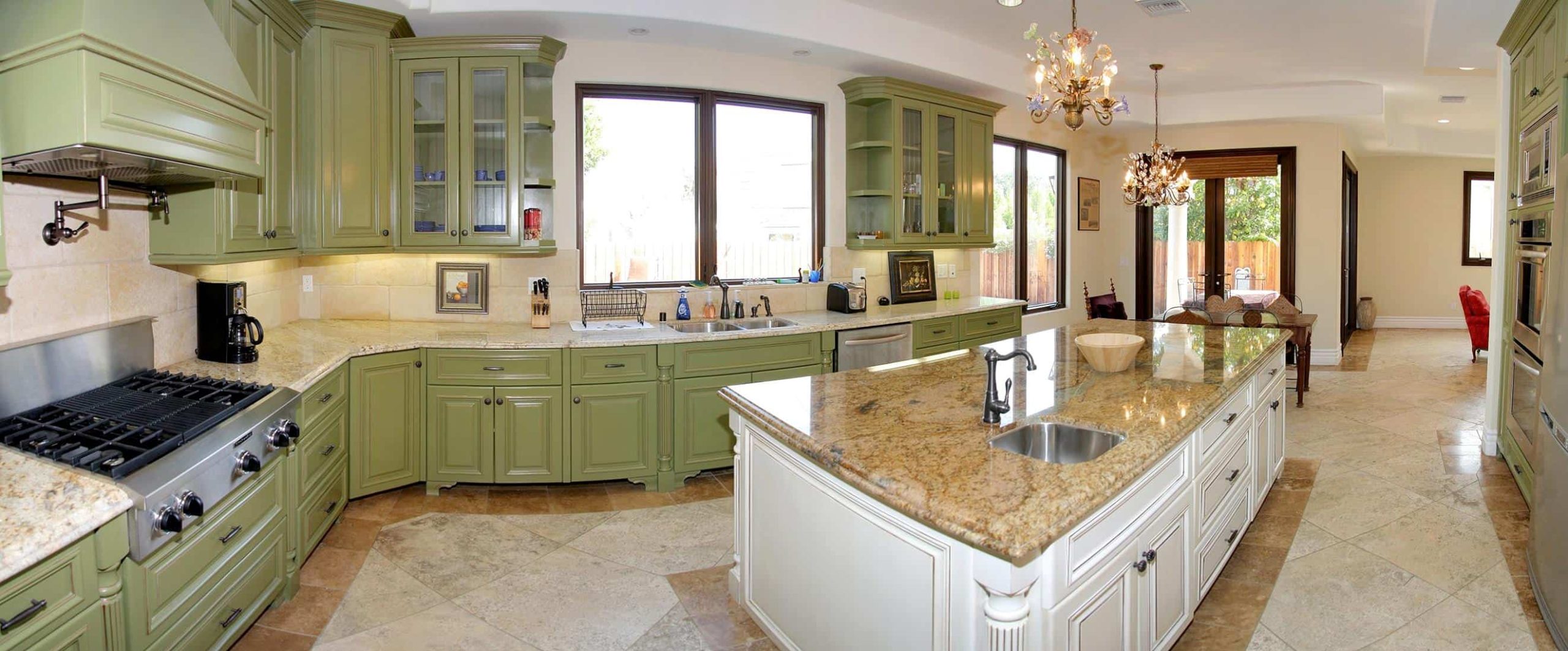
Kitchen Remodel Timeline by Scope
The timeline of a kitchen remodel is significantly influenced by the scope of the project. Understanding what each type of remodel entails and the associated timelines can help you better plan your renovation.
Minor Kitchen Remodel
A minor kitchen remodel typically involves cosmetic updates and improvements without major structural changes. This may include replacing countertops, refacing cabinets, upgrading appliances, adding a backsplash, and updating lighting fixtures. The timeline for a minor kitchen remodel is usually around 2 to 4 weeks.
Major Kitchen Remodel
A major kitchen remodel includes more extensive changes such as new cabinetry, upgraded countertops, flooring, plumbing and electrical work, and potentially some structural modifications. This type of remodeling typically takes 6 to 12 weeks.
Complete Kitchen Remodel
A complete kitchen remodel is the most extensive type, often involving a total overhaul of the space. This can include knocking down walls, changing the layout, installing new plumbing and electrical systems, and all the updates covered in a major remodel. The timeline for a complete kitchen remodel can range from 3 to 5 months.
Also Read: Is Kitchen Remodeling Tax Deductible?
Stages in a Kitchen Remodel and Associated Timelines: From Pre-Construction to Final Touches
The process of remodeling a kitchen can be divided into distinct stages, each with its own timeline and specific tasks. Understanding these stages can help you manage the project more effectively.
Pre-Construction Phase
The pre-construction phase is the foundation of your kitchen remodel. This stage involves planning, designing, hiring professionals, obtaining necessary permits, and preparing the site for construction.
Step 1: Planning and Designing Your Kitchen Renovation Plan (1-4 weeks)
The initial step in any kitchen remodel is to plan and design the new space. This process includes an initial consultation with a designer or architect to discuss your vision, needs, and budget. Following the consultation, design drafts and 3D renderings are created and reviewed for approval. This stage also involves finalizing the budget to cover materials, labor, and any contingencies. The planning and design phase typically takes between 1 to 4 weeks, depending on the complexity of the design and the number of revisions needed.
Step 2: Hiring the Kitchen Remodeling Contractor (1-3 weeks)
Selecting the right kitchen remodeling contractor is crucial for the success of your remodel. This step involves researching experienced and reputable contractors, conducting interviews to discuss your project and get quotes, reviewing bids to find the best balance of cost, timeline, and quality, and finally signing a contract with your chosen contractor. This process usually takes 1 to 3 weeks. Taking the time to choose the right contractor can prevent issues later in the project.
Step 3: Obtaining Permits and Approvals (2-4 weeks)
Permits and approvals are essential for ensuring that your remodel complies with local building codes and regulations. This step involves submitting applications for necessary permits from local authorities, waiting for approval (which can vary depending on the complexity of the project and the efficiency of local building departments), and scheduling required inspections during the construction phase. Obtaining permits typically takes 2 to 4 weeks, but this range can vary based on the specific requirements of your locality and the scope of your remodel.
Step 4: Ordering Materials (2-4 weeks)
Ordering materials early in the process helps prevent delays. This step includes selecting cabinets, countertops, appliances, flooring, and fixtures, placing orders from suppliers and manufacturers, and coordinating deliveries to align with the construction timeline. Material lead times can vary significantly. Standard items may be available quickly, while custom or high-end materials may take longer, typically between 2 to 4 weeks.
Step 5: Demolition (1-4 Days)
Once everything is in place, the demolition phase begins. This involves preparing the site by protecting surrounding areas from dust and debris, removing old cabinets, countertops, appliances, and flooring, and disposing of demolished materials safely and efficiently. Demolition usually takes 1 to 4 days, depending on the size of the kitchen and the extent of the work required.
Construction Phase
The construction phase is where the transformation of your kitchen takes place. This stage includes all the building, installation, and finishing work required to bring your design to life.
Step 6: Demo Time (1-2 days)
The actual demolition process involves breaking down walls if necessary, removing outdated plumbing and electrical systems, and preparing the space for new installations. Demo time typically takes 1 to 2 days, ensuring the area is ready for the next steps.
Step 7: Plumbing and Electrical Work (1-2 weeks)
Plumbing and electrical tasks are essential elements of any kitchen renovation. This step includes installing new pipes and plumbing systems, upgrading wiring, outlets, and lighting fixtures, and ensuring all work meets local building codes and standards. This stage usually takes 1 to 2 weeks, depending on the extent of the updates needed.
Step 8: Structural Changes (1-3 weeks)
If your remodel involves structural changes, this step will be more extensive. It includes moving or constructing walls to create a new layout, adding or repositioning windows and doors as needed, and adding necessary framing and support structures. Structural changes can take 1 to 3 weeks, depending on the complexity of the modifications.
Step 9: Installation of Cabinets and Countertops (1-3 weeks)
With the structural work complete, the installation of new cabinets and countertops begins. This step involves fitting new cabinets into the kitchen, measuring and installing countertops to ensure a perfect fit, and making any necessary custom adjustments for a seamless finish. This phase typically takes 1 to 3 weeks, depending on the number of cabinets and the type of countertops chosen.
Step 10: Flooring and Backsplash (1-2 weeks)
The next step is installing the flooring and backsplash. This includes laying new flooring materials such as tile, hardwood, or vinyl, installing backsplash tiles to protect walls and add visual appeal, and completing the process with grouting and sealing for durability. Flooring and backsplash installation usually takes 1 to 2 weeks.
Step 11: Final Touches and Inspections (1-2 weeks)
The final touches bring your kitchen remodel to completion. This step involves painting walls and ceilings, installing handles, knobs, and other hardware, and conducting inspections to ensure all work meets standards and specifications. Final touches and inspections typically take 1 to 2 weeks, ensuring every detail is perfect.
Step 12: Clean-Up and Handover (1 Day)
The last step in the construction phase is clean-up and handover. This includes thoroughly cleaning the kitchen to remove dust and debris, conducting a final walk-through with the homeowner to review the completed work, and addressing any remaining issues or concerns before handover. Clean-up and handover usually take 1 day, leaving you with a pristine, newly remodeled kitchen.
Post-Construction Phase
The post-construction phase ensures everything is in order and wraps up any final details. This phase is relatively quick but essential for a smooth transition.
Step 13: Final Walk-Through with Your Kitchen Remodeling Contractor (30-60 Minutes)
During the final walk-through, you will review the completed work with your contractor, inspect the kitchen to ensure all work meets your expectations, address any minor issues or touch-ups needed, and confirm your satisfaction with the remodel. This step typically takes 30 to 60 minutes.
Step 14: Final Payment (10 Minutes)
Once the final walk-through is complete and you are satisfied with the work, the final payment is made to the contractor. This step is straightforward and usually takes about 10 minutes.
Factors Influencing Kitchen Remodel Timeline
Several factors can influence the timeline of a kitchen remodel, and understanding these can help you better plan and manage the project.
Size of the Kitchen: The dimensions of your kitchen significantly influence the timeline for your remodel. Smaller kitchens typically require less time to remodel compared to larger kitchens, which involve more work and materials.
The Complexity of the Design: The complexity of your kitchen design also affects the timeline. Custom designs with intricate details and unique features can take longer to execute than standard, simpler designs.
Availability of Materials and Supplies: The availability of materials and supplies can impact the remodel timeline. Commonly available materials are usually quicker to obtain, while custom or special-order items can cause delays if they are not readily available.
Contractor Availability: The timeline can be affected by your contractor’s availability and efficiency. Contractors with a busy schedule may have limited availability, leading to potential delays. Choosing a reputable and reliable contractor is crucial for staying on schedule.
Permits and Inspections: Local regulations and the process of obtaining permits and inspections can also impact the timeline. Some areas have more stringent requirements and longer processing times, which can extend the duration of the remodel.
Tips for Staying on Schedule and Speeding Up Your Kitchen Remodel
Staying on schedule and potentially speeding up your kitchen remodel requires careful planning and proactive management. Here are some tips to assist you in this endeavor:
Plan Thoroughly Before Starting: Detailed planning before starting the remodel is essential. Create a realistic timeline, set clear goals, and make all necessary decisions regarding design, materials, and budget in advance.
Hire Reputable Contractors: Choosing experienced and reliable contractors is crucial for staying on schedule. Look for contractors with a proven track record, positive reviews, and the necessary expertise to handle your remodel efficiently.
Keep Communication Open: Keeping clear and open communication with your contractor is crucial for a successful remodel. Regular updates, prompt decision-making, and addressing any issues as they arise can help keep the project on track.
Prepare for the Unexpected: Unexpected issues can arise during any remodel. Building in buffer time for unforeseen problems such as delays in material delivery, hidden structural issues, or other complications can help you stay on schedule.
Conclusion
Understanding how long it takes to renovate a kitchen is crucial for setting realistic expectations and planning your remodel effectively. The timeline can vary based on the scope of the project, the size and complexity of the kitchen, the availability of materials, and the efficiency of your contractor.
By following a detailed plan, hiring reputable professionals, maintaining open communication, and preparing for unexpected challenges, you can ensure a smooth and timely kitchen remodel. Whether you are undertaking a minor update or a complete overhaul, this comprehensive guide provides the insights and information you need to navigate the remodeling process successfully and achieve the kitchen of your dreams.
Hire Diditan Group for Your Kitchen Remodeling Needs!
At Diditan Group, we are proud to be your trusted home builder in Los Angeles, California. Specializing in kitchen renovations, we bring unparalleled expertise and creativity to transform your kitchen into a beautiful and functional space. Our team of skilled professionals is dedicated to delivering exceptional results, ensuring every detail meets your highest standards. Whether you’re looking for a minor update or a complete kitchen overhaul, Diditan Group is here to bring your vision to life. Contact us today to schedule a consultation and start your dream kitchen project!
Frequently Asked Question
Q.1 How long do most kitchen remodels take?
Ans Most kitchen remodels typically take between 6 weeks to 4 months. The exact duration depends on the scope of the project, from minor cosmetic updates to major structural changes. Detailed planning and efficient execution are key to staying within this timeframe.
Q.2 Should I move out during kitchen remodel?
Ans Moving out during a kitchen remodel can be beneficial to avoid inconvenience and disruption. It ensures safety and allows contractors to work efficiently. However, the decision depends on the remodel’s extent and your tolerance for noise and dust. Consider temporary accommodation if the project is extensive.
Q.3 What is the hardest part of the kitchen remodel?
Ans The hardest part of a kitchen remodel is often managing the disruption to daily life. Living without a functional kitchen, dealing with noise, and dust, and ensuring all elements come together as planned can be challenging. Effective planning and communication with your contractor are crucial to navigating these difficulties.
Q.4 What is the typical duration for remodeling a small kitchen?
Ans Remodeling a small kitchen typically takes 6 to 8 weeks. This includes planning, design, ordering materials, and the actual construction work. The shorter timeline compared to larger kitchens is due to the smaller space and fewer materials required, but it still requires careful coordination and planning.

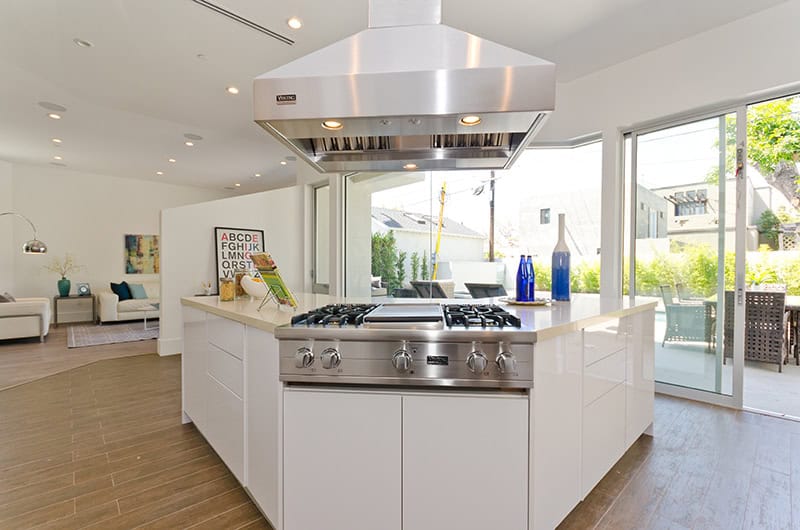

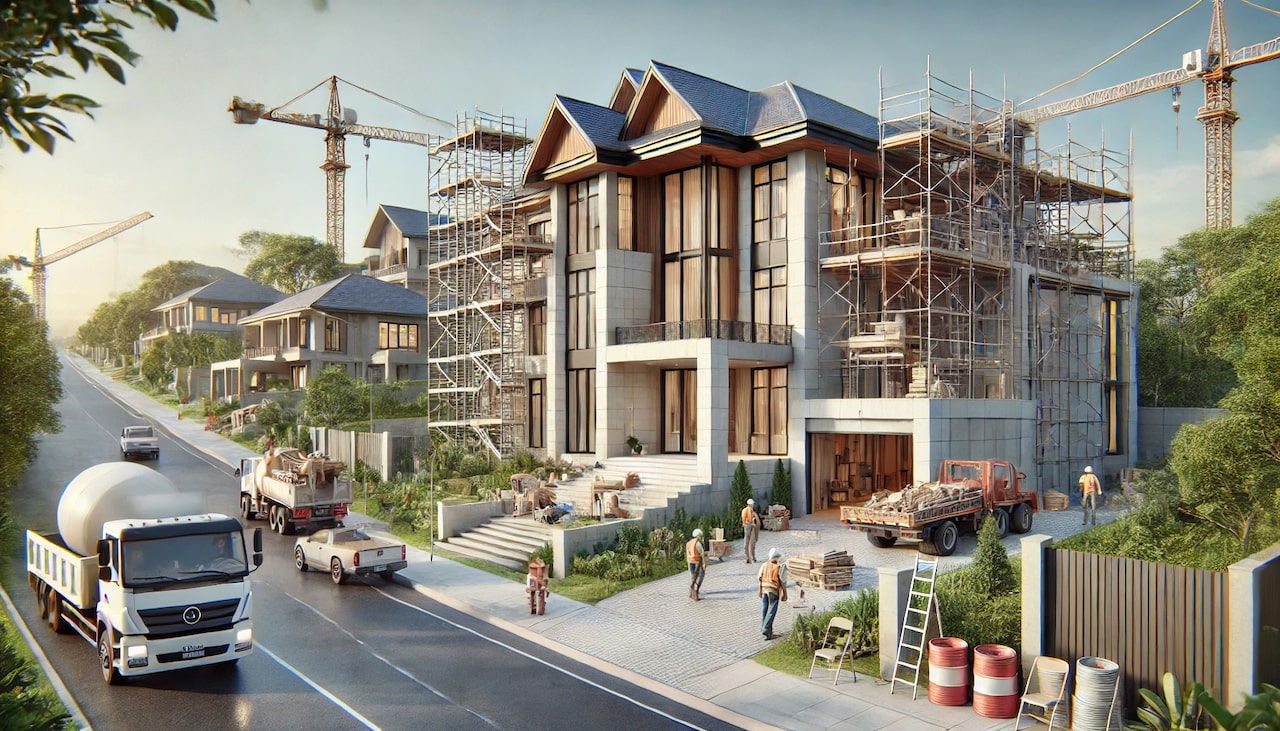


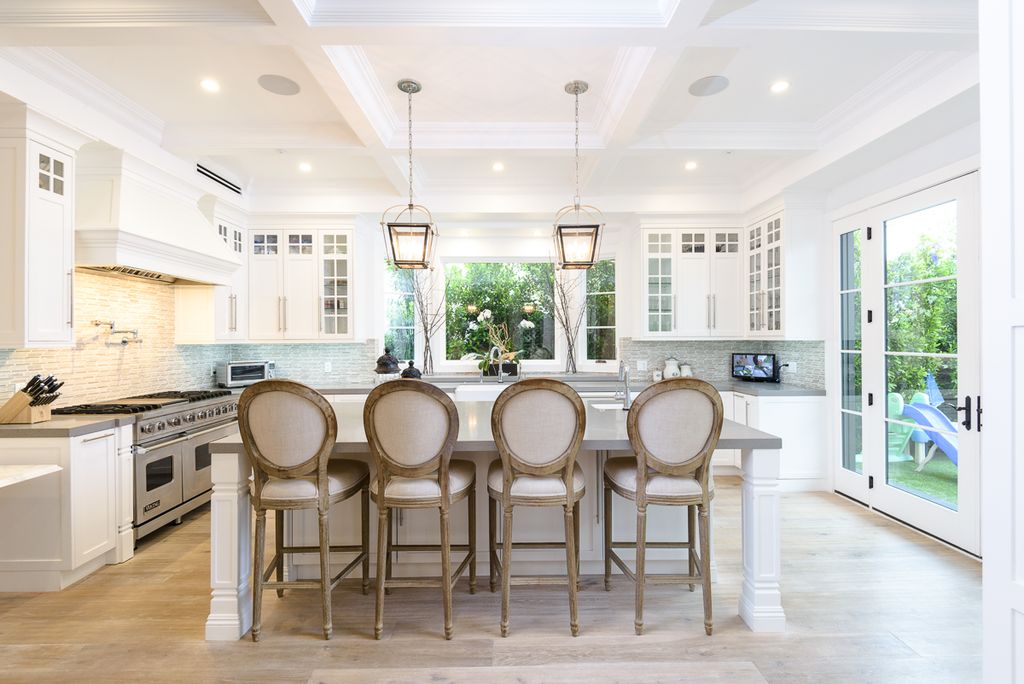
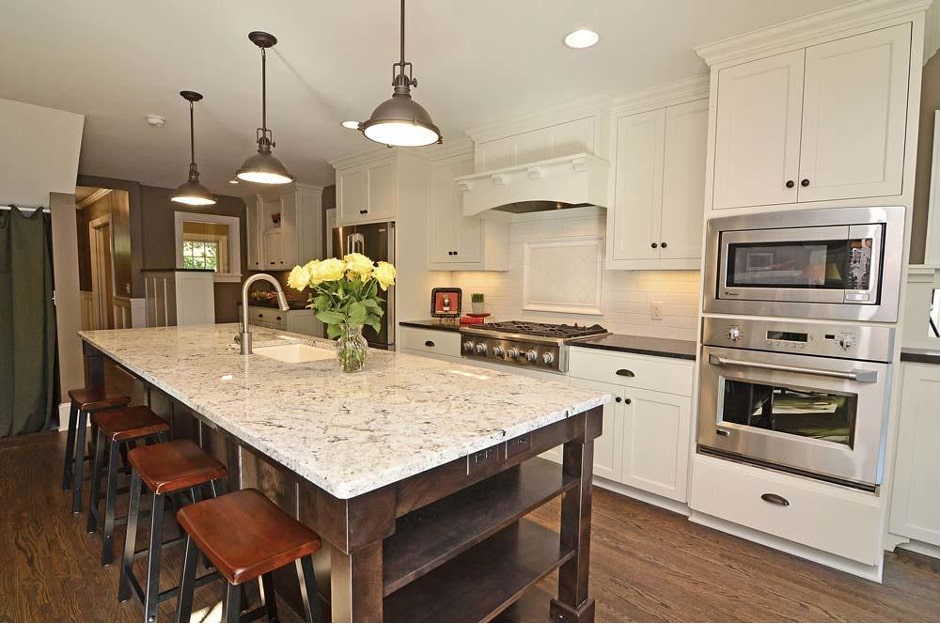
Leave A Comment